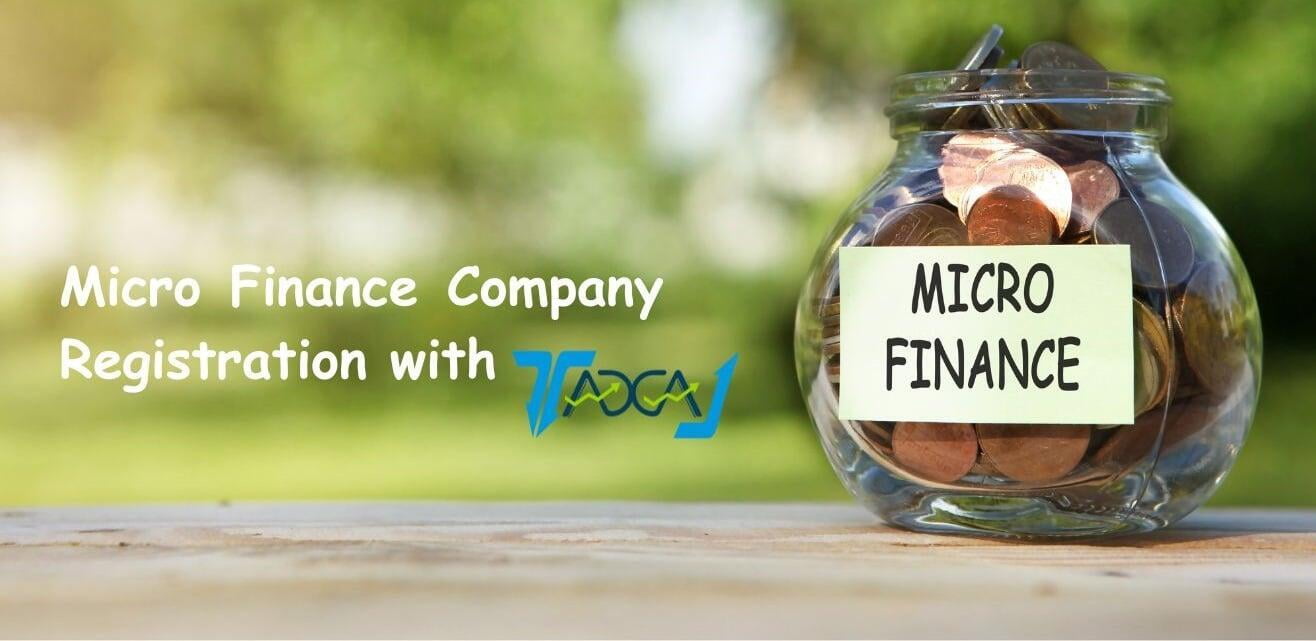Micro Finance Company
Micro Finance Companies are financial companies that provide small loans to people who do not have any access to banking facilities. The definition of "small loans" varies between countries. In India, all loans that are below Rs.1 lakh can be considered as microloans. Although most microfinance institutions are set up in order to target the eradication of poverty as their primary motive, some of the new entrants are focussed on the sale of more products to consumers. Microfinance institutions have been gaining popularity in the recent years and are now considered as effective tools for alleviating poverty. Most MFIs are well-run with great track records, while others are quite self-sufficient. The primary goals of microfinance institutions are the following:
- Transform into a financial institution that assists in the development of communities that are sustainable.
- Help in the provision of resources that offer support to the lower sections of the society. There is special focus on women in this regard, as they have emerged successful in setting up income generation enterprises.
- Evaluate the options available to help eradicate poverty at a faster rate.
- Mobilise self-employment opportunities for the underprivileged.
- Empowering rural people by training them in simple skills so that they are capable of setting up income generation businesses.
Benefits of Micro Finance Company
- Micro Finance Company enables the deprived section of the society to reach out to present opportunities - The income accumulation of poor households has improved due to the presence of microfinance institutions that offer funds for their businesses without much of documentation.
- Micro Finance Company provides easy access to credit - Microfinance opportunities provide people credit when it is needed the most. Banks do not usually offer small loans to customers; Micro Finance Company providing microloans bridge this gap.
- Micro Finance Company makes future investments possible- Microfinance makes more money available to the poor sections of the economy. So, apart from financing the basic needs of these families, Micro Finance Company also provide them with credit for constructing better houses, improving their healthcare facilities, and exploring better business opportunities.
- Micro Finance Company serves the under-financed section of the society - Majority of the microfinance loans provided by Micro Finance Companies are offered to women.
- Micro Finance Company helps Unemployed people and those with disabilities are also beneficiaries of microfinance. These financing options help people take control of their lives through the betterment of their living conditions.
- Micro Finance Company helps in the generation of employment opportunities - Microfinance institutions help create jobs in the impoverished communities.
- Micro Finance Company inculcates the discipline of saving - When the basic needs of people are met, they are more inclined to start saving for the future. It is good for people living in backward areas to inculcate the habit of saving.
- Micro Finance Company brings about significant economic gains - When people participate in microfinance activities, they are more likely to receive better levels of consumption and improved nutrition. This eventually leads to the growth of the community in terms of economic value.
- Micro Finance Company results in better credit management practices - Microloans are mostly taken by women borrowers. Statistics prove that female borrowers are less likely to default on loans.
- Apart from providing empowerment, microloans also have better repayment rates as women pose lesser risk to borrowers. This improves the credit management practices of the community.
- Micro Finance Company results in better education - It has been noted that families benefiting from microloans are more likely to provide better and continued education for their children. Improvement in the family finances imply that children may not be pulled out of school for monetary reasons.
Types of Group by MFI
Micro Finance Companies form several types of Groups for offering credit, insurance, and financial training to the rural population in India:
How to Form your own Micro Finance Company?
1. Minimum Two Directors.
We need Pan Card, Aadhar Card, Photo of both the Directors.
2. Registered Business Address.
Electricity Bill of the Premises.
3. Name of your Micro Finance Company.
4. Mail these Documents to connect@taxaj.com
You can also Whatsapp 📲 at +91-88028-12345
You will get your Micro Finance Company Registered in 7 to 10 Working Days.
Need to Check Credit Information Before Lending?
Are you suffering Losses due to Habituated Offenders Not Paying Back Loans?
Are you still providing loans without any Background verification & Credit Check?
We at TaxaJ makes sure that our clients have all the relevant data in their hand so that they can make Data enabled decisions before lending a credit or loan. Our enriched Tie ups help the Micro Finance and Nidhi Companies to lend sensibly.


